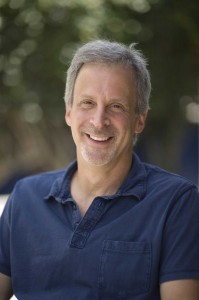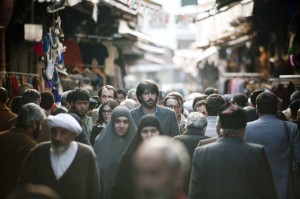
“When I read the screenplay, I knew this had the chance to be a special film,” William Goldenberg shared about his feelings when he was approached to edit Argo, director Ben Affleck’s dramatization of the secret 1980 operation to extract six fugitive diplomats from Iran during that country’s Islamic revolution and embassy hostage crisis.
The film maintains a delicate balance between action, suspense, drama and humor. Shifting the tone within the film was the most challenging aspect of the editing process. “We knew that was going to be the most difficult part, just from the script,” Goldenberg revealed. “Mixing life-and-death situations with comedy and politics is a difficult line to walk. We were very careful to keep the comedy organic to the movie, organic to the characters, so it didn’t feel like punch lines.” To avoid juxtaposing comedic elements right up against deadly situations, the filmmakers used a buffer, such as an establishing shot, to keep a smooth flow to the narrative tenor. He adds, “It was extremely important for the film to feel like one movie. If a scene stuck out, it got cut out.”

A first preview screening in front of an audience can be stressful for the filmmakers. There is never any certainty about how an audience will react, but in hindsight those screenings can be a validation of all the hard work that has gone into making the film. Goldenberg shares, “One of my favorite days on the movie was the day we previewed for 500 strangers. People applauded several times throughout the movie. They laughed at the jokes. The sense of joy and relief when that happens is almost overwhelming.”
Argo is Goldenberg’s second collaboration with Affleck. He cut the directors first feature film, Gone Baby Gone. As an editor, he has worked with a number of well-regarded and high profile directors, but his collaboration with Affleck has been his favorite. “I really enjoy Ben as a person,” Goldenberg said. “I think that we do great work together. How an editor gets along with a director in the room is a big part of a successful working relationship. Collaboration has a lot to do with how the personalities match, how honest you are going to be with each other and how easy it is to be with somebody for 14 hours a day.”
During production, their process of working together included extensive discussions about the movie and the scenes, usually without specifics about individual takes, allowing Goldenberg to ascertain Affleck’s vision for the film while giving him a free hand at the edit. “He likes to have me take a pass without a lot of input and see what I come up with,” Goldenberg commented. “Through a sort of process of osmosis, of having a lot of discussions, that’s what I use to get inside his head, to see what he is trying to accomplish with each scene. He likes me to bring something fresh to the table.”
Once the production and first cut are complete, they develop the film as “a team focused on the same goal.” For Goldenberg, that makes for both a fun and a great experience, “one of the best as an editor.”





